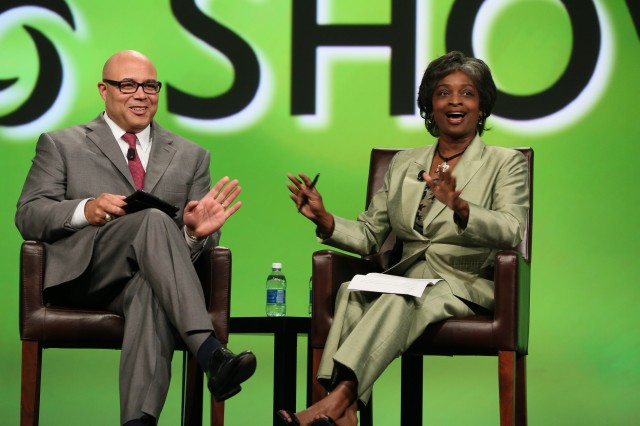
FCC commissioners Jessica Rosenworcel and Mignon Clyburn yesterday called for stronger network neutrality rules than the ones fellow Democrat and Federal Communications Commission Chairman Tom Wheeler has thus far supported.
In a speech yesterday at a congressional forum on net neutrality, Rosenworcel said, "we cannot have a two-tiered Internet with fast lanes that speed the traffic of the privileged and leave the rest of us lagging behind."
The FCC's tentative proposal approved in May would not prevent Internet service providers from charging Web services for priority access to consumers over the network's last mile, but it asked the public for comments on whether the commission should impose stricter or weaker rules. A total of 3.7 million comments poured in, mostly in favor of stronger restrictions on how ISPs treat Internet traffic.
The FCC's tentative net neutrality vote in May was 3-2, with Republican commissioners Ajit Pai and Michael O'Rielly dissenting. Final rules could again come down to what the three Democratic commissioners want, but chairman Wheeler hasn't revealed his plans.
Stronger rules could require reclassifying broadband as a utility, opening Internet providers up to regulations similar to those placed on telephone providers under Title II of the Communications Act.
"So as we look for a way forward, I am pleased that Chairman Wheeler has recently acknowledged that all options, including Title II, are on the table," Rosenworcel said. "As we proceed, we must also be mindful that more than 3.7 million people have written the agency to express their opinion."
Former Republican FCC chairman Michael Powell is now leading the fight against Title II reclassification for the cable industry as head of the National Cable & Telecommunications Association.
Clyburn also spoke at the forum yesterday, saying the commission should apply similar rules to fixed broadband and cellular service. The FCC's tentative rules on blocking and traffic discrimination would impose weaker restrictions on cellular data than fixed broadband.
Consumers often use mobile devices over Wi-Fi, which is an extension of fixed broadband networks and could thus be subject to different rules than cellular, Clyburn noted.
"Cisco projects that 52 percent of mobile data traffic will be offloaded to Wi-Fi by 2018, and from the consumers’ perspective, they often do not know whether they are using cellular data or Wi-Fi, because the transition is seamless," Clyburn said. "To me, this means we need to be careful, to avoid creating differing or conflicting standards or rules for Wi-Fi and mobile."
Many lower-income consumers use mobile devices as "their only access to broadband—if they have broadband at all," she said. "Given these trends, I will be focusing my review on how different proposals will impact the consumer’s experience. What is the impact on a consumer whose mobile broadband may be her only access to broadband? If we have lower standards for mobile, will providers make clear that the experience may be different?"
Clyburn supported reclassification of broadband under Title II in 2010, when the FCC passed its first net neutrality rules. Those were struck down in court this year because they imposed utility-like regulations without classifying broadband as a utility, setting off the current round of rulemaking. In her speech yesterday, Clyburn said the FCC needs to decide on the right policy first and then "determine the appropriate legal framework to achieve that result."
reader comments
109